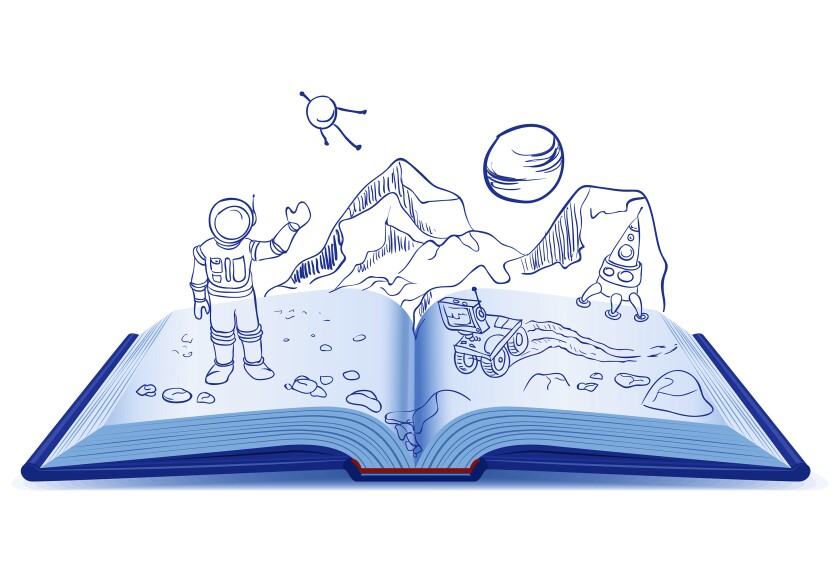The more children know about a subject, the easier they’ll find it to read and understand a passage about that topic. It’s a simple idea that’s backed up by research: Studies have shown that students who score higher on tests of general knowledge are also comprehend more of what they read.
Informed by these findings, some curriculum companies have organized their English/language arts series to build students’ background knowledge on a collection of topics. Now, advocates of this knowledge-building approach have released a tool, designed for states, districts, and schools to evaluate how well curricula they’re planning to adopt meet this goal—or how their current selections stack up.
The Knowledge Matters Campaign, a group that advocates for this approach to ELA instruction and has endorsed several curricula, debuted the tool on Wednesday.
The guidelines are meant to help clarify what a knowledge-building curriculum is, and is not, as the term is increasingly “being thrown around,” said Barbara Davidson, the executive director of the Knowledge Matters Campaign.
“Knowledge building” has become a buzzword in the education field recently, in part due to advocates in the “science of reading” movement, who have championed curricula that cover content-area knowledge in depth.
The Knowledge Matters Campaign’s review tool outlines eight “dimensions” of knowledge-building curricula for grades K-8, each with its own criteria. The tool doesn’t cover other components of early literacy programs, such as foundational decoding or word-reading skills. It’s designed to be used in conjunction with other review instruments.
1. Laser-like focus on what matters most for literacy
2. Communal close reading of content-rich, challenging texts
3. Systematic development of high-value academic language to support building knowledge
4. A volume of reading organized around conceptually coherent text sets to build knowledge
5. Regular discussions grounded in texts and topics to build knowledge
6. A volume of writing to build knowledge
7. Targeted supports to ensure all students have access to challenging, grade-level content
8. Ease of enacting curriculum
Unlike what’s perhaps the most popular curriculum review tool in the field, the nonprofit evaluator EdReports, the new tool doesn’t feature a numerical score or rating system for materials. Instead, the rubric offers open-ended questions.
“It’s much less important to us that there would be some sort of numeric or calculable outcome,” Davidson said. She hopes that it prompts schools and districts to have dialogue and debate about whether materials meet the criteria, and how.
“What I’m hopeful of is that this can create a conversation, and cause people to be curious,” she said.
What the research says on knowledge building
Studies do show that students with more background knowledge are better readers. But the research base is more complicated when it comes to proactively teaching background knowledge in an attempt to improve reading comprehension.
When students learn deeply about a subject in their ELA classes, they score higher on reading comprehension tests about that subject—for example, reading a lot about World War II would result in better reading comprehension on passages about World War II. But studies show that often, these subject-specific gains don’t translate to general improvements on standardized measures of reading comprehension.
Some interventions do, though.
Studies of certain knowledge-building curricula have shown student improvement on standardized tests. In a study of one such curriculum, Core Knowledge, students who were randomly selected into charter schools that used the materials scored on average 16 percentile points higher on end-of-year state tests than their peers who also applied to these schools’ lotteries, but were not selected and attended other schools.
Other research indicates that it matters how knowledge-building curricula are sequenced and presented.
In another study, researchers at Harvard University found that students performed better on standardized tests when their teachers helped them draw connections between the different units they studied—creating a flexible mental model that they could then apply to understand new topics.
The Knowledge Matters tool attends to this idea of drawing connections, with one of the eight dimensions focused on conceptual coherence of texts in a program.
How the tool is different from others in the field
The Knowledge Matters tool joins a group of instruments designed to evaluate ELA curricula—the most well-known of which is EdReports’, which evaluates ELA materials against a broader set of standards for alignment, text quality, and usability, among other factors.
The EdReports tool does include a section for knowledge building. Jamilah Hicks, EdReports’ managing director of literacy, said there were many commonalities between the organizations’ two tools.
But Sue Pimentel, a founding partner of Student Achievement Partners, a professional-development group founded by the lead writers of the Common Core State Standards, and one of the creators of the Knowledge Matters tool, said that the group’s instrument provides a way to dig deeper into how knowledge is incorporated across a curriculum.
The differences lie in the tools’ purpose: Knowledge Matters’ tool asks open-ended overarching questions, aimed at starting a conversation about how to attend to building students’ content knowledge and find out if a series is weak in one dimension, while EdReports’ numerical scores can help districts weigh the tradeoffs among different series.
The tool should be an “invitation to discernment,” Davidson said.






